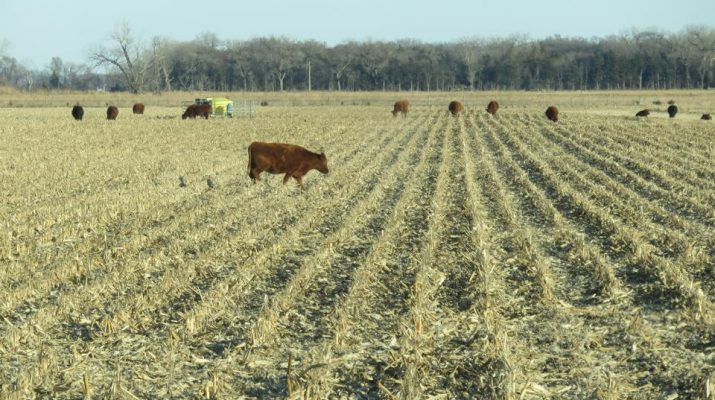Cattle have been prized and valued by humans since ancient times, with some cultures even using them as a currency unto themselves. Today, the value and transaction of both beef and dairy cattle are facilitated by livestock auctioneers. One example is Cascade Livestock Auction LLC, owned and run by Todd and Karen Bergfeld. The Bergfelds had already been in the cattle business as farmers and seed stockers when they purchased the auction business in September 2016.
“Typically we have Black Angus, Charolais, Red Angus, and Holsteins,” said Todd Bergfeld. “We’re in that central location where we have a little bit of everything and we’re pretty diversified. There are enough people who milk cows and are in the dairy industry around here yet, and enough in the beef industry to sell here.”
Cascade Livestock Auction services farmers and meatpackers within a close-to two-hour radius, including Galena, Rock Island, Clinton, the Cedar Rapids area, Independence, Winthrop, and even Michigan on occasion. The Bergfelds facilitate two kinds of auctions, fed cattle sales which facilitate the transaction of cattle from farmers to meatpackers, and feeder sales which move cattle to feedlots.

“Our Monday fed cattle sales are pretty much cut and dried,” said Bergfeld. “There are numerous packers who come in to buy the cattle to go to slaughter. Our feeder sales on Thursdays and Saturdays are for the people who feed out the cattle and we advertise through radio and paper for them to come and what we’re going to have. For the most part, it’s fall through spring for the feeders. We do have a few summer sales, but it’s predominately fall and spring.”
According to Bergfeld, it takes more outreach effort to bring in cattle and buyers for the feeder sales, as packers are pretty reliable to come to the fed sales.
“Sometimes we have to reach out,” he said. “For our feeder sales, you really have to advertise to bring them in. For our fed cattle sales, the packers just know they’re going to be here. It’s established where they know we’re going to have the numbers of fed cattle they’re looking for that week and just come and buy.”
Cascade Livestock Auction employs 18-20 employees including the cooks in the cafeteria, auctioneers, and people who manage the cattle during the sale. Bergfeld explained the process of a typical auction.
“Typically, for a fed cattle auction, you bring your cattle in — say you have a group of 10 — load them on Sundays from 2-8 in the evening, and we have a certain number on your name which we call a slip number. The cattle get put in a pen and yard with your number and they’ll be held overnight. We sell in the order of arrival and when your cattle are ready, that card comes with them so when they’re sold, we know whose cattle they are and enter them in our computer system. They come in the ring, the buyers are all there to buy them, and of course, they go to the highest bidder. Then they’re led out and go into the pen with the buyer number.”
Bergfeld expressed his love for the livestock business, stating an appreciation of the honesty in the occupation as opposed to cutthroat corporate careers.
“There’s no better way to raise your family than a livestock business, I don’t think. The people, farmers, cattle feeders, raisers and buyers; a lot of our buyers are really good guys. It’s one of those businesses that’s an honest business to learn. A man’s handshake is still worth something in this business, whereas in a lot of other businesses it has to be on paper. I also just love cattle. I could look at cattle all day.”


